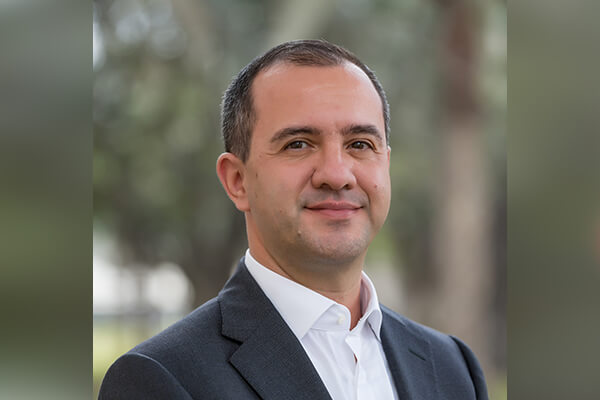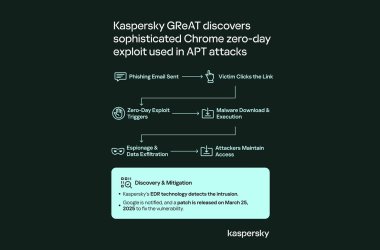“There, there; at least you’ve got your health.”

It is the saying our elders turn to as comfort when times are bleak. Its widespread use is indicative of the value we place for healthcare in general, even as the Fourth Industrial Revolution blurs the lines between the physical and the virtual.
We may all go along with the digital tune, but we have not entirely abandoned age-old priorities. And there are stark indicators that we are not averse to letting the digital realm play a central role in the maintenance of our health, especially when it comes to robotics and artificial intelligence.
A PwC report from this year predicts a $320bn impact on the Middle East economy from AI by 2030, with a 13.6% contribution to the UAE and a 12.4% to Saudi Arabia’s GDPs. Gulf states have risen to meet the challenges of economic development by turning to AI, with the UAE appointing His Excellency Omar bin Sultan Al Olama as the world’s first minister of state for artificial intelligence.
Healthy glow
While research conducted by IDC lists the financial sector as the biggest opportunity for AI services, it is followed closely by public services such as education and healthcare. The Gulf’s economic visions all put healthcare at the top of the agenda, as the high average net worth of citizens has seen issues such as diabetes, heart conditions and obesity become prevalent. The region now sees such high demand for healthcare policies that they have driven an average CAGR of 11% across the GCC’s total insurance industry.
Optimal operations under new paradigms
Healthcare is data-generating overachiever, of sorts. But, managing all this data presents many
challenges and opportunities for healthcare organizations. Fortunately, healthcare organizations now are flocking to analytics in greater numbers than ever before.
Digital transformation and AI are core keys that help GCC lead the world in healthcare innovation. In 2017, UAE-based doctors performed their first multi-organ cadaver transplant – a stunning leap forward for Emirati medicine – and free treatment for three types of cancer was introduced for basic-coverage patients. UAE hospitals also adopted the practice of smart medical records, revolutionising how and where patient information is collected and stored.
As a result of these developments, healthcare tourism increased 12% during the year, with 350,000 visitors recorded.
Apart from that, the UAE and wider region has also witnessed the rise of robot surgeries, smart solutions for geriatric health and 3D printing for prosthetics and orthopaedics. While Telemedicine is also finding growing acceptance in the country and beyond, through apps such as MobileDoctors247, Sehhaty, Health at Hand, Smart Seha and HeyDoc.
The Tinman and the Heart
A Statista survey from early 2017 underscored these developments, showing a good rate of willingness by the GCC to allow medical robots to check heart rhythms and deliver diagnoses based on the findings. Up to one third (32% in Saudi Arabia and 31% in UAE, for example) said they would be open to the idea. Just a few months later, a separate report from PwC claimed two thirds of Middle East patients would be willing to “replace human doctors with AI and robots”. Critically, this included 77% of Saudis and 63% of UAE respondents willing to use an intelligent healthcare assistant via a mobile app to seek medical care for a loved one.
Given this shift in attitudes – ostensibly driven by the GCC’s relatively young demographic – the reduced burden on facilities, equipment, doctors and nurses is axiomatic. Non-emergency care will be revolutionised, allowing hospital and clinic resources to be diverted towards more intensive care. And AI has many more applications in the wider field of healthcare R&D – from helping cancer researchers to better target treatments, to speeding up drug development so more time can be spent on due diligence.
Building a healthier future
Microsoft remains to be at the forefront in leading the way through AI-based healthcare systems. Our HIPAA-compliant Health Bot allows insurers and providers alike to build AI services for patients. Azure’s Microsoft Genomics delivers cloud-powered genomic-processing services to researchers and clinicians. Our AI Network for Healthcare is an AI-focused cardiology network, in partnership with India’s Apollo Hospitals. And Project EmpowerMD, is a collaboration with UPMC to create a system that monitors doctors and learns from what they say and do, dramatically reducing the burden of note-taking for physicians. These are just a few of the many projects and examples that are empowering healthcare providers everyday to achieve more.
The future of health relies on the notion of Artificial Intelligence (AI), or the capability of intelligent systems to sense the world, comprehend, act and learn. Imagine the world of opportunities that this opens-up in terms of empowering health professionals.





